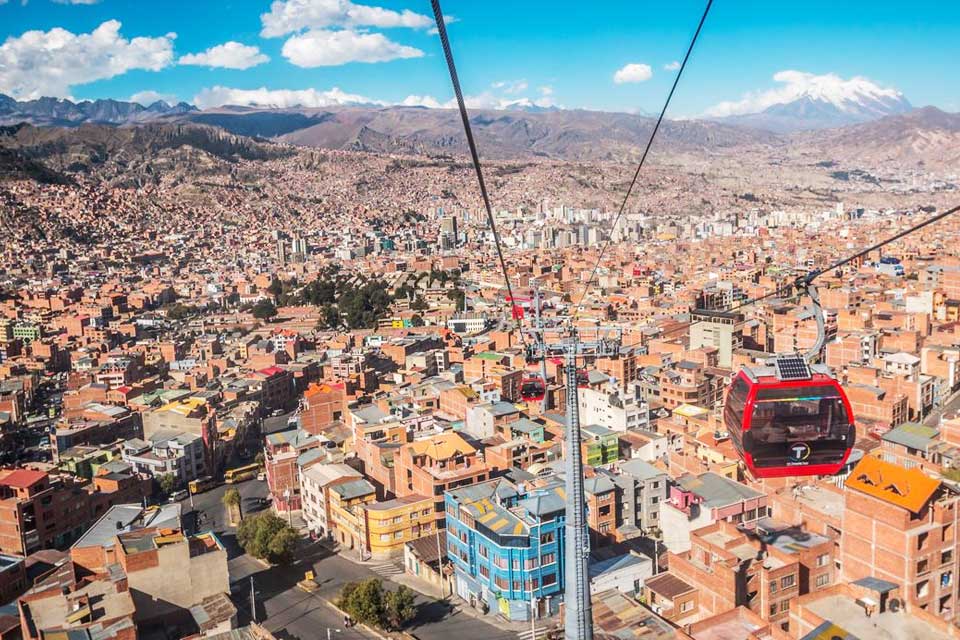The economy of Bolivia is the 95th largest economy in the world in nominal terms and the 87th economy in terms of purchasing power parity. It is classified by the World Bank to be a lower middle income country. Political instability and difficult topography have constrained efforts to modernize the agricultural sector. Similarly, relatively low population growth coupled with low life expectancy and high incidence of disease has kept the labor supply in flux and prevented industries from flourishing. Rampant inflation and corruption also have thwarted development, but in the early twenty-first century the fundamentals of its economy showed unexpected improvement, leading major credit rating agencies to upgrade Bolivia’s economic rating in 2010. The mining industry, especially the extraction of natural gas and zinc, currently dominates Bolivia’s export economy.

La Paz
12,186,079
Spanish
$11.439 billion
Argentina 16%, Brazil 15%, United Arab Emirates 12%, India 10%, United States 6%, South Korea 5%, Peru 5%, Colombia 5% (2019)
gold, natural gas, zinc, silver, soy products, tin (2021)
$10.799 billion
Brazil 22%, Chile 15%, China 13%, Peru 11%, Argentina 8%, United States 7% (2017)
cars, refined petroleum, delivery trucks, iron, buses (2019)
